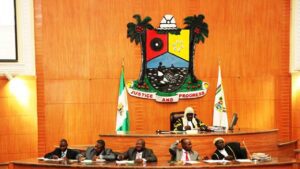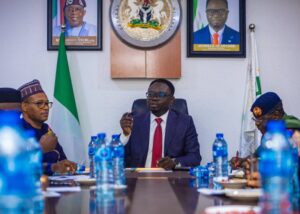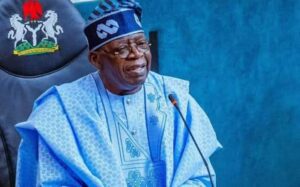
Oyetola at 68: Making a difference
Kunle Oyatomi
Politics is the doctrine of the possible, the attainable—Otto von Bismarck (1815-1898) Prussian Statesman
In Nigeria’s volatile political firmament, there are a thousand and one myths. One of them is that incoming administrations would always exceed the excesses of their predecessors. The basic idea or presupposition is that since we never fail to have bad governments, there is a seeming curse of the recurring cycle of incompetent rulers.
Another myth says elections and their outcome are not determined by the electorate, but by a shadowy clique locked somewhere waiting to impose their figures on the people.
Yet a third: when budgets are proposed by the executive for consideration by the legislators, only a third of the fund (or less), according to most Nigerians, eventually goes into serving the interests of the larger majority.
Now, the fourth: no public officer, elected or selected (appointed), is ever in that position to serve the people, no; they are there for themselves, their families and cronies. That’s how we arrived at cronyism and nepotism.
These are some of the notions, rated as myths, that play upon both leaders and the led in the polity called Nigeria. We experience them all the time, at the centre of governance, in the states and at the local government level.
So as Gboyega Oyetola came in as the ninth governor of the State of Osun in 2018, he instantly suffered the assault of these afflictions by default. It was left for him, by his comportment in public and in private to fight back and prove that a man’s fate lies in his hands, not in the stars or sky, nor in so-termed man-made myths and traditions.
This was put to dramatic effect in William Shakespeare’s play Julius Caesar, when Cassius, a Roman nobleman, declared: ‘’The fault, dear Brutus, is not in our stars/ But in ourselves, that we are underlings.’’
One of Oyetola’s early feats as the chief executive of Osun was to demystify the notion that governments were uncaring when it was the issue of prompt payment of salaries and pensions. He met a strange system that either gave way for large debts of unpaid wages to the civil servants or salaries not paid in full.
He brought a human face into the structure. Admitting that resources were limited, the governor nevertheless found a way around it to satisfy the workers by stopping halved wages. He also lifted the embargo on promotions in some respects in the Civil Service. He then moved on to address the concerns of the senior citizens. He brought them succor by giving them dues previously denied them.
He has also made a difference in the lives of the wider sector of the citizenry. For instance, the governor has brought the dividends of democracy closer to the people by modernizing and upgrading the health, market, education and road infrastructure in the rural regions of the state. He has also undertaken some legacy projects that will continue to be the talk of the town deep into the years ahead. The Olaiya Flyover is one such, which has changed the skyline of Osogbo, the capital.
These achievements are among feats that have earned this self-effacing politician many accolades including, the Gentle Giant, by which is meant that he is a silent performer. He has made the hitherto sleepy State of Osun to be the cynosure of all eyes as the world observes its strides into one of the most stable states in the federation.
Many have wondered how it all happened or what landed him here into this pleasant present. Now, let’s note this: you can’t divorce Adegboyega Isiaka Oyetola from his past. Understanding his history necessarily leads to understanding his today, and where he is headed in the years to come.
Adegboyega Isiaka Oyetola, a man of sundry interests, was born on 29, 1954, in Iragbiji, Boripe Local Government Area of Osun State, to the family of Hammed Oyetola. Part of his early education was at Ifeoluwa Grammar School, Osogbo, graduating in 1972.
He went on to read Insurance at University of Lagos and bagged B.Sc. The patriot that he was, young Oyetola dutifully served his country under the NYSC programme in Potiskum, capital of present-day Yobe. Later he obtained his MBA, also at Unilag.
Oyetola launched into a business career at Leadway Assurance Company Limited as an Area Manager. After moving on to other outfits in senior capacities, he established his own setup, Silvertrust Insurance Brokers Limited in 1991. He was its MD until 2011 when he was appointed Chief of Staff to Governor Rauf Aregbesola.
Oyetola was a member of the Alliance for Democracy, AD, and has been in the party through its metamorphoses to Action Congress, AC, Action Congress of Nigeria, ACN, to the present All Progressives Congress, APC. He contested for the governorship position on the APC ticket and won in 2018. Oyetola was sworn in to office on November 27, 2018.
Married to Kafayat Olaitan, Oyetola is a father and grandfather.
He is an Associate Member, Chartered Insurance Institute in London and Nigeria. He is also a member of the Nigerian Institute of Management, NIM. Oyetola has also bagged numerous awards, local and international, attesting to his capacity and prowess as a gifted administrator who still has a lot to give his people in the future.
Happy Birthday, Your Excellency!



